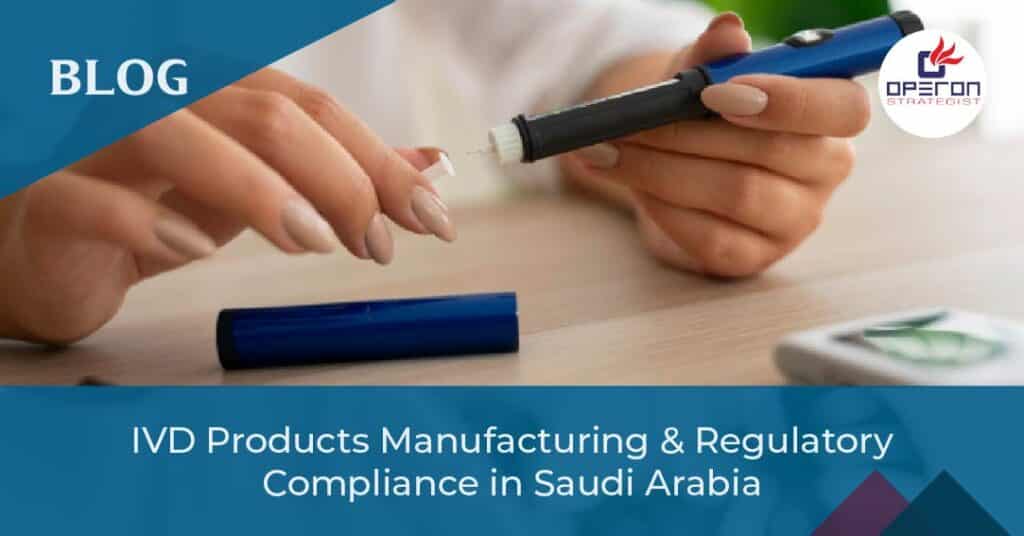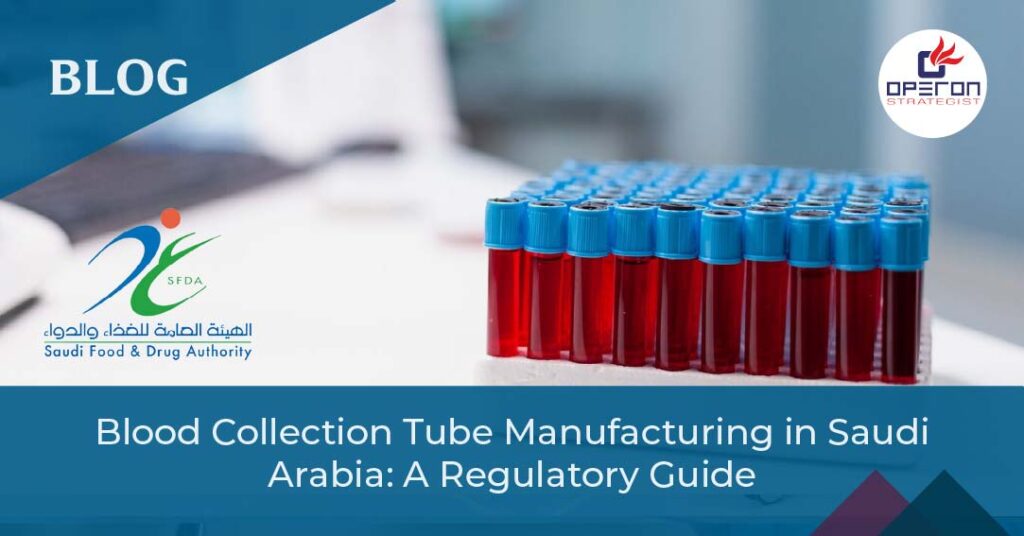Overview of IVD Products Manufacturing and Regulatory Compliance
The healthcare industry in Saudi Arabia is growing rapidly under Vision 2030, creating significant opportunities for manufacturers of In Vitro Diagnostic (IVD) products. With the rise in demand for diagnostic solutions, the Saudi Food and Drug Authority (SFDA) has established clear regulatory pathways to ensure that IVD products meet international standards of safety, quality, and performance.
For manufacturers and distributors, understanding IVD products manufacturing and regulatory compliance in Saudi Arabia is critical to achieving market entry and long-term success.
Looking For a Medical Device Regulatory Consultant?
What are IVD Products?
In Vitro Diagnostic (IVD) products are medical devices, reagents, instruments, or systems intended to perform tests on human samples (such as blood, tissue, or urine) to provide information for diagnosis, monitoring, or treatment decisions. Examples include:
- Blood glucose monitors
- Rapid test kits (COVID-19, pregnancy, infectious diseases)
- Clinical chemistry analyzers
- Molecular diagnostic devices
IVD Products Manufacturing in Saudi Arabia
To establish IVD manufacturing in Saudi Arabia, companies must adhere to:
- Good Manufacturing Practices (GMP):
- Facilities should comply with ISO 13485:2016 (Quality Management System for medical devices).
- Cleanroom standards and contamination control must be followed.
- Product Design & Validation:
- Risk management as per ISO 14971 is mandatory.
- Performance validation and usability studies should be documented.
- Sterilization & Packaging:
- For sterile IVD products, sterilization must meet SFDA-approved methods (e.g., ISO 11135, ISO 11137).
- Packaging should maintain sterility and ensure safe transport.
Regulatory Compliance for IVD Products in Saudi Arabia
The SFDA oversees the approval and monitoring of IVD products before they are placed on the market. Key requirements include:
- Device Classification:
- IVD products are classified into Class A, B, C, and D based on risk level, with Class D being the highest risk (e.g., HIV test kits). Learn more about the device classification as per SFDA.
- SFDA Medical Device Marketing Authorization (MDMA):
- Submission of technical documentation including design dossier, performance evaluation, and labeling.
- Evidence of compliance with international standards (ISO, IEC).
- Labeling Requirements:
- Labels must include product name, intended use, sterilization details (if applicable), lot number, expiry date, and language compliance (Arabic & English).
- Post-Market Surveillance (PMS):
- Manufacturers must report adverse events and maintain a vigilance system as per SFDA guidelines.
- Import & Distribution Licensing:
- Companies importing IVD products must have an SFDA establishment license and a local authorized representative.
Streamline your IVD product manufacturing and regulatory compliance in Saudi Arabia
Role of Operon Strategist in SFDA Compliance
At Operon Strategist, we support IVD product manufacturers and distributors in navigating the complexities of SFDA regulations. Our services include:
- Regulatory Strategy Development – Identifying the right classification, pathway, and approval process for your IVD products.
- Technical Documentation Support – Compiling and reviewing performance evaluation, risk assessment, and sterilization validation reports.
- SFDA Submission Assistance – End-to-end support in filing MDMA applications and responding to authority queries.
- GMP & ISO Implementation – Helping set up ISO 13485-compliant manufacturing units in Saudi Arabia.
- Post-Market Compliance – Guidance on vigilance reporting, audits, and surveillance requirements.
With our expertise, manufacturers can accelerate product approvals, reduce regulatory risks, and achieve sustainable market access in Saudi Arabia.
FAQs
Do international certifications like CE or FDA help in SFDA approval for IVD products?
Yes, CE and FDA certifications are considered supportive evidence, but SFDA requires localized documentation and compliance.
How long does the SFDA approval process for IVD products take?
Timelines vary by device classification, but typically range from 6 to 12 months depending on the completeness of documentation.
Is local testing required for IVD products in Saudi Arabia?
In some cases, SFDA may require local performance validation, especially for high-risk IVD devices.




